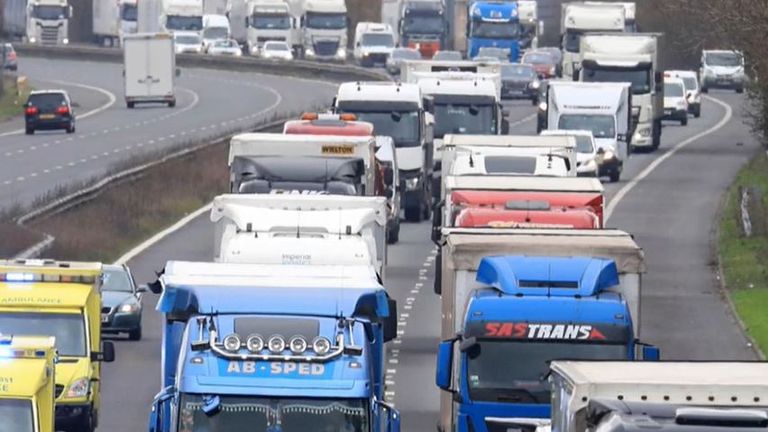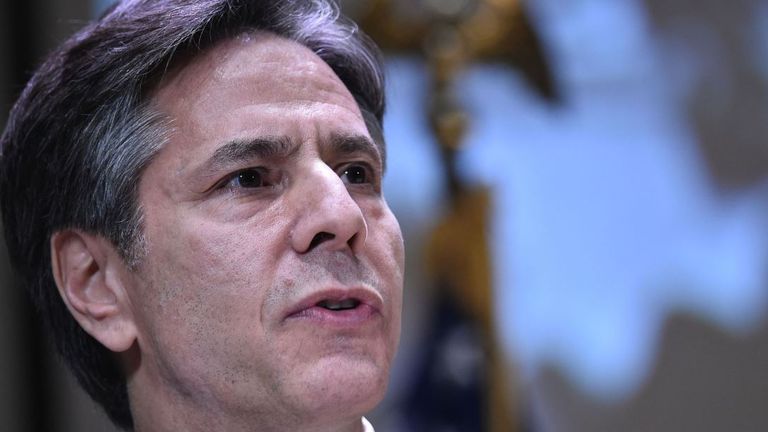Boris Johnson and European Commission president Ursula von der Leyen are to hold emergency talks as negotiations on a post-Brexit trade deal go down to the wire.
With time for an agreement rapidly running out, the two sides' chief negotiators announced on Friday they were putting the talks on "pause" to allow political leaders to take stock.
In a joint statement following the latest round of negotiations in London, the UK's Lord Frost and the EU's Michel Barnier said the conditions for an agreement had still not been met.
Lord Frost and Mr Barnier said Ms von der Leyen and Mr Johnson would "discuss the state of play" on Saturday afternoon.
It comes after a week of intense negotiations in London, with late night sessions fuelled by deliveries of sandwiches and pizza.
Lord Frost and Mr Barnier blamed the break-down in the talks on "significant divergences on level playing field, governance, and fisheries".
The level playing field refers to state subsidies and standards: the EU fears that Britain could become a low-regulation economic rival, cutting standards and heavily subsidising its industries.
Britain, meanwhile, wants to "take back control" from Brussels and set its own economic policies.
The fishing industry is another obstacle - a small part of the European economy at large, but very important to nations such as France.
The EU wants to continue to fish in British waters, but Britain wants to control access and quotas.
Sky's deputy political editor Sam Coates said that the pause in talks was "no doubt a very significant moment" - but "not unexpected".
"Things didn't go terribly well on Thursday in the negotiating room and (on Friday) they didn't get markedly worse, but on the issues we've talked about for the last 12 months, there isn't the gap being closed," he said.
Coates said it was possible that the call between Mr Johnson and Ms von der Leyen could produce "a bit of a breakthrough", but "while it is possible both sides could agree there are no more talks necessary, I'm told that is the least likely outcome".
Britain formally left the 27-nation bloc at the end of January and has spent most of the year in a transition period, with rules on trade, travel and business unchanged.
But a trade deal needs to be approved by politicians in Britain and the EU before the end of the year to take effect on 1 January.
Without it, both sides would have to grapple with tariffs and trade barriers that would bring huge disruption.
European Council President Charles Michel said: "We will see what will happen in the next days.
"But the end of December is the end of December and we know that after 31 December we have 1 January, and we know that we need to have clarity as soon as possible."
https://news.google.com/__i/rss/rd/articles/CBMic2h0dHBzOi8vbmV3cy5za3kuY29tL3N0b3J5L2JyZXhpdC1ib3Jpcy1qb2huc29uLXRvLWhvbGQtY3Jpc2lzLXRhbGtzLXdpdGgtZWMtY2hpZWYtdG8tYnJlYWstdHJhZGUtZGVhZGxvY2stMTIxNTE2NDfSAXdodHRwczovL25ld3Muc2t5LmNvbS9zdG9yeS9hbXAvYnJleGl0LWJvcmlzLWpvaG5zb24tdG8taG9sZC1jcmlzaXMtdGFsa3Mtd2l0aC1lYy1jaGllZi10by1icmVhay10cmFkZS1kZWFkbG9jay0xMjE1MTY0Nw?oc=5
2020-12-05 02:38:46Z
52781222921133



Tidak ada komentar:
Posting Komentar